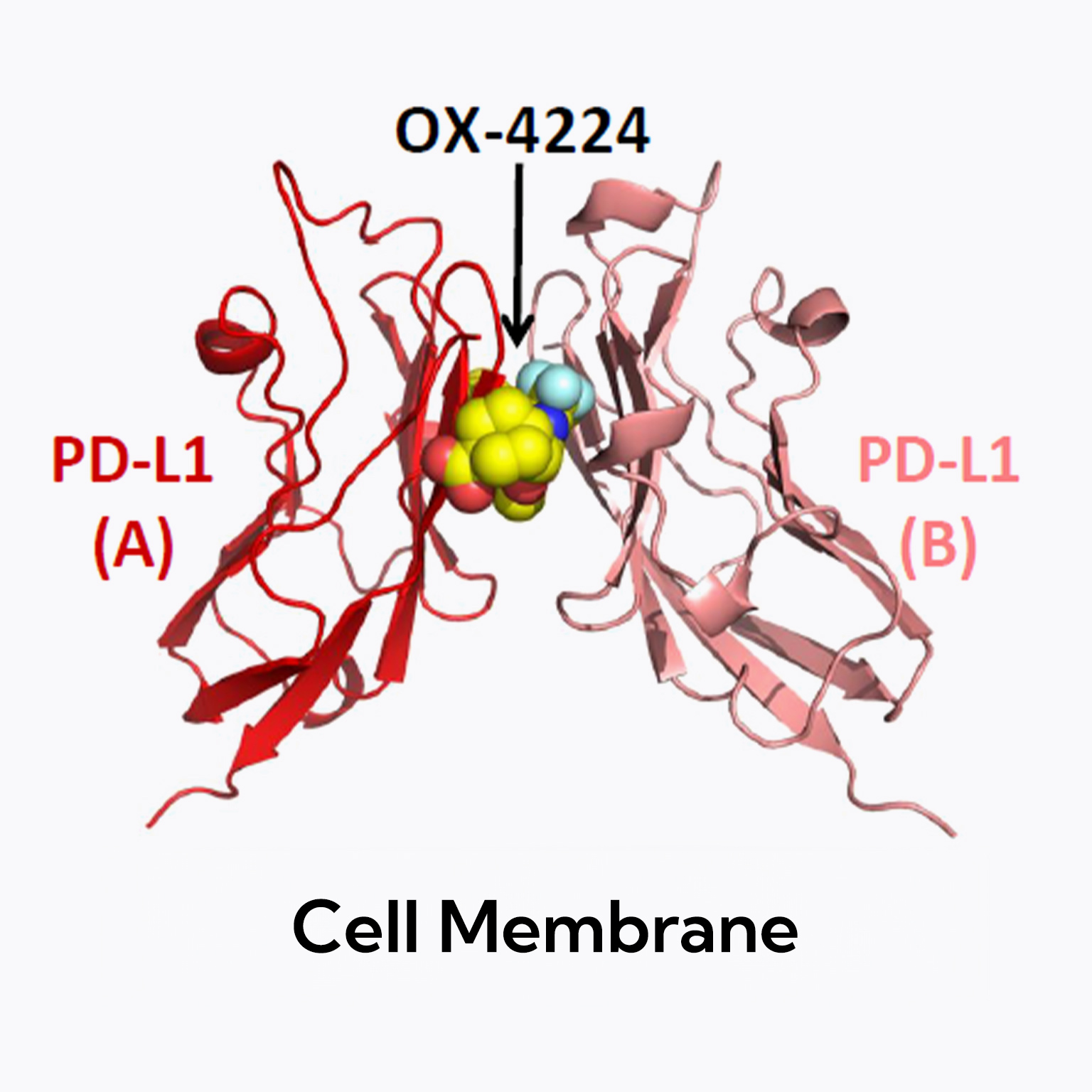OX-4224: A Breakthrough in Oral Cancer Immunotherapy
Best-in-class, orally bioavailable small molecule that functions as a potent and selective PD-L1 inhibitor.
Stage: Phase 2-ready | Status: Initiating Phase 2 in Q1 2025

Targeting Cancer with Precision
PD-L1 contributes to cancer progression by inhibiting the immune system’s ability to recognize and destroy cancer cells through its interaction with PD-1 receptors on T-cells. OX-4224 (also known as evixapodlin) dimerizes PD-L1, forming a trimer complex and effectively blocking the binding site for PD-1 on T cells. This inhibition occurs both on the cell surface and within the cell, preventing PD-L1 from translocating to the cell surface. The action of OX-4224 is particularly potent in cells with high PD-L1 expression, such as tumor cells, while sparing normal, healthy tissue where PD-L1 expression is lower.
Unlocking New Potential in Cancer Treatment
An oral, small molecule PD-L1 inhibitor like OX-4224 offers significant benefits over traditional antibody-based therapies, making immune checkpoint inhibitors more accessible and effective for cancer patients:
Increased Specificity
This drug targets cells with high PD-L1 expression (tumor) more effectively than those with low expression (normal/healthy tissue), potentially improving tolerability in combination therapies.
Enhanced Penetration
Due to its size and biophysical properties, OX-4224 may achieve better penetration into tumor tissue and the surrounding microenvironment, potentially enhancing efficacy in certain cancer types.
Reduced Immune-Related Adverse Events
OX-4224's lack of immunogenicity and shorter half-life reduce the risk of immune-related adverse events that are common with antibody checkpoint inhibitors.
Flexible Dosing
The oral administration of OX-4224 allows for a more flexible dosing regimen, eliminating the need for infusion centers and offering greater convenience to patients.
Cost-Effective
Lower production and logistical costs make OX-4224 a more affordable treatment option, broadening access for patients across diverse healthcare settings.

